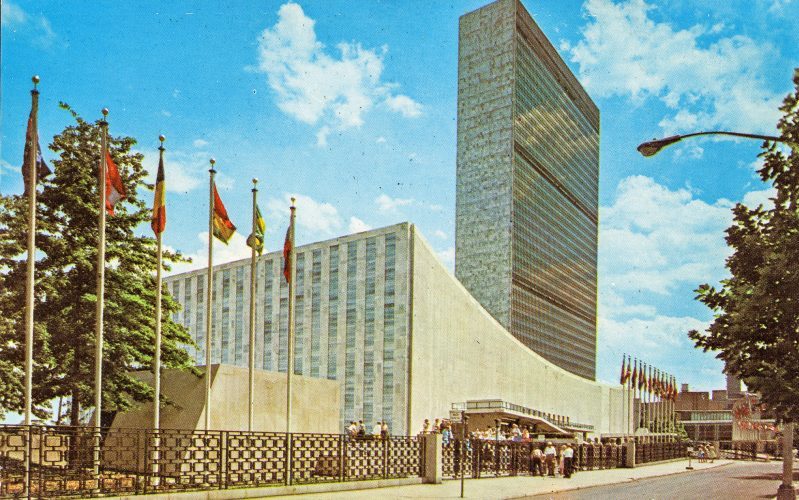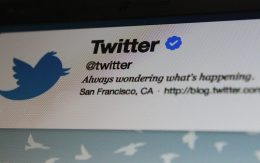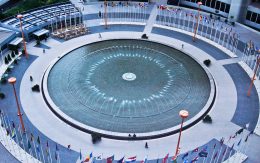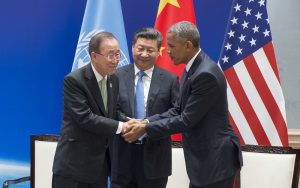Since the 1980s new forms of alternative diplomacies have been rising and, as a consequence of the continuous intensification of the globalization process, a pronounced structural change in the practices of diplomacy is visible: they nowadays are progressively not only enacted by states but also by non-state actors, such as international organizations, companies and similar entities. This continuous stratification contributed to the rising complexity in the communications between international actors, hindering states to ignore these new evolving features of global governance. Nevertheless, there is still a pre-eminence of state diplomacy in the international environment and they continue to maintain their central role in the international foreign policy setting.
This article depicts the gradual diversification of diplomatic practices, considering the growing importance of non-governmental diplomacies. The analysis sustains a viewpoint according to which states in foreign policies are still a fundamental element that must be considered in the process of construction of national interests. Besides that, it is recognized that there has been an increase in forms of parallel diplomacies. To demonstrate this idea, this article first will analyse how the role of the state gradually shifted from a state-centred perspective to a more focused one on individuals since the 1980s. The second section then provides a concrete example of the deepening of the participation of non-state actors in the scope of diplomatic affairs considering the case of the newly developed e-diplomacy. Finally, the concluding arguments refer to the central role that states still have in diplomatic affairs, thus confuting the idea of the end of state diplomacy.
Changing perspectives
The mainstream theories of foreign policy in relation to state diplomacy rely on a realist perspective. The concept of realism implies the centrality of the state in the processes of securitization of the national interest. According to this viewpoint, the state is recognized as the main actor in every external relation and it is the unique promoter of specific practices of dialogue to survive the condition of anarchy of the international system (Morgenthau, 1948). Thus, state survival is guaranteed by the power possessed by the state and diplomacy is considered as a useful instrument to exhibit power in the relations with other governmental entities (Sharp, 2009). Hence, transforming the diplomatic affairs in an elitist working context, only accessible to those to have learned its practices, its inner mechanisms and have enough power to confront the other players.
Unfortunately, the definition of national interests is still not universal. As defined by Sonderman, they are “too broad, too general, too vague, too inclusive” (Weldes, 1996). This contributed to the acceptance of a wide range of different definitions, mostly related to the interpretation given by the considered country. Its characteristic of being vague provided debatable room in explaining who had to be the acting player and if there are others yet unknown involved in the process of pursuing the final aim together with nation states.
However, during the past decades in particular, we assisted in a structural shift with regard to the relationship between states and other non-governmental entities. The scholarship about diplomacy has been affected by the fast expansion of informal diplomacies – in other words, the growth of informal channels of communication, acknowledging that politics and negotiations can occur in various places such as a corridor, a bar, or an informal meeting (Mamadouh, et al., 2015). The focus of global governance moved from state-centred theories to recognising individuals as the core of social interaction, underlining the important contribution of their social interconnections in affecting the style in which countries are practising diplomacy. In addition to it, the remodelling of the global economic market around the mid-70s has facilitated international transfers and further blurred the geographic borders, allowing freer movement of capital, with an added and continuous technological progress and the stratification of outside border connections (Strange, 1992). These phenomena together allowed the progression of new economic actors on the international scene, such as transnational firms, but also the proliferation of social organizations, civil associations and NGOs, associable with the newly evolved and developed private sector (Cheema & Rondinelli, 2007).
As a matter of fact, this steady progression toward a more interconnected reality contributed to the emergence of a new style of diplomatic bargaining, involving non-sovereign entities and indeed going beyond the traditional conception of diplomatic dialogue as exclusively considered amidst formal state entities. Numerous parastatal or regional entities have pursued an imitation of the diplomatic practices in terms of formalities and protocols, adopted to claim their diplomatic equivalence to the other international state powers. In particular, the technological evolution of recent years obliged states to rethink a feasible strategy, to be adopted as a consequence of the massive and fast growth of the cyber world.
E-diplomacy and Facebook
The development of the internet and its increased impact throughout various sectors created the necessity, even for state entities, to re-elaborate their practices, taking into account the new variable of cybersecurity and the changing role of diplomacy. The novelty of this alternative and high-tech diplomacy is that the state-to-state dialogue is gradually overcome and substituted by the interactions between other different entities, including proper diplomats, non-state actors and common citizens. A new style of relationship has emerged, central to the debate about this alternative diplomatic style. Companies’ leaders and CEOs of the biggest technological companies in the world, such as Facebook and Google, have become the counterparts in the dialogue about foreign policies of the international powers (Barrinha & Renard, 2017). The negative opinion of Roger Cohen about traditional diplomacy can be connected to this newly renovated approach to diplomacy. His statement about the death of diplomacy as we knew had a relevant global resonance (Cohen, 2013).
The evolution and the increased usage of social networks offered the possibility to everyone to have their part in the political process of their countries with an opinion on a personal blog, a tweet on Twitter or a post on Facebook. The traditional channels of communication of diplomacy and politics have been increasingly flanked by new practices, involving technology and social networks. Nowadays, it has become more common to exploit the wide diffusion of international online social platforms to convey institutional messages and directives. In addition, this feature turned also to be useful to sub-states and to non-state actors to try to play a relevant political role on the international stage.
Facebook is a great example of how the gradually augmented predominance of a social network on the international scene can transform itself into a quasi-non-state actor since its worldwide presence has indeed changed the mechanisms of state entities’ foreign policies. With its capacity to connect people even on a large geographical scale, it encouraged the creation of new networks and online interest groups around various issues. Accessibility to the most varied knowledge reduced the elitist features of foreign policy, diminishing the formality of some diplomatic mechanisms and influencing governments’ approaches in dealing with transnational issues. This so-called “network diplomacy” surpassed the traditional media of debate, adding more layers to the diffusion of data and assisting diplomats in performing their work (Bali, et al., 2018). As a matter of fact, in 2018 Facebook released a guide that helps with the creation of an institutional space on the platform, called “Digital Diplomacy on Facebook” (USC Center on Public Diplomacy, 2018).
On the one side, the in-between position of the platform, linking common citizens and institutions, civil organizations, and on the other, public/private entities and their larger access to sensible data, transformed the platform into an exploitable instrument for states. The latter obtained a new means of entry on various issues and thus turning Facebook into an important diplomatic partner to take into consideration when developing foreign policy’s strategies, thereby augmenting the role of the company in the process of pursuing national interest. An example of the increased utility of the social network is related to the willingness of many international powers, including the United States, to involve the company in the process of counterterrorism. In fact, Facebook had and still has an active role in fighting terrorism through its efforts to eliminate all material related to terrorism, including images, videos, posts and fake profiles used to recruit foreign fighters (Bickert & Fishman, 2018).
State diplomacy resists
Nonetheless, the new styles of the so-called para-diplomacies which move beyond the strict diplomatic theory of the past maintain the promotion and the achievement of interests as the final objective. The actual diplomacy still takes place following formalities and protocols according to traditional practices. However, the new relationship between states and firms is represented as an advantageous exchange of benefits and opportunities for both entities. The access to information and personal data from well-known tech companies has transformed them into a valid partner for national governments. They are motivated by this win-win condition in which both could obtain advantages.
And yet, even if the geographical borders are more blurred and geopolitics became more transnational due to the technological boom and globalization in general, the element of the nation-states, as intended in accordance with the Westphalian conceptualization, is still respected in diplomacy (Blatter, 2001). The presence of multinational companies, NGOs and civil associations with a relevant presence in foreign policies does not generate a challenge for the nation-states per se, but they reinforce the layers of communication and the actors involved enhancing the development of multilateral diplomacy. The different initiatives implemented by Facebook are carried out with regard to the countries in which it operates, so there is a strong connection between the company and the hosting country. Furthermore, as McConnell (2012) underlined in her work, the only imitation of state-level practices of public diplomacy is insufficient to create an international personality and a state-kind legitimate position.
The growth of international visibility and the consequent appearance of these actors on the scene closer to international state powers submit them to higher pressures. However, the original reasons behind their foundations have a different source from the one that motivated the establishment of the nation-states. The development of state and non-state actors is incomparable, but the latter gradually learned practices, acquired skills and experience progressively, reaching international visibility. Yet, these non-governmental entities, the transnational companies such as Facebook need a system of supportive infrastructures that can be provided mainly by a State. Thus, the environment in which the subject operates is completely dependent on the policies carried out by the state, and in this way, exposing the companies and organizations themselves to its influence. As D. Anderson said in his work: “Facebook certainly wouldn’t want to bite the hand that feeds and stabilizes its opportunities” (2019).
Conclusion
In conclusion, the scholarship about diplomacy has changed over time, with different supported mainstream theories like realism, which still is the highest valued and adopted by researchers to interpret the behaviour of institutional entities on the international stage. The reality of alternative diplomacies is vast and partially still unknown. Because of the constant technological evolution, there is a continuous flourishing of new layers of interconnections between institutional and non-institutional actors. Furthermore, the modification in the degree of centrality of states in foreign policy interactions has challenged the traditional picture of the state as the unique protector and achiever of the national interest. As a consequence, this shift in the mindset raised questions about the possible disappearance of state diplomacy. The massive shift to a more online diplomatic practice turned to be an instrument to bypass the state entities which are unwilling to collaborate and to directly reach the population or those interested. In addition, the blurring of geographical boundaries and the spread of transnational companies with a growing relevance on the international scene obliged states to start taking new non-state or para-state actors into consideration in the pursuit of their diplomatic and public policies. Yet, many entities are still trying to reach a state-level recognition through a process of mimicry of state practices and protocols, such as the cases discussed by McConnell (2012), thus reinforcing the (still) strong position of the state in diplomacy.
To conclude, the increased number of connections between peoples, the new communication techniques and the expanding global presence of transnational companies, NGOs and other civil associations, have challenged the pre-eminence of states in foreign policies. Nevertheless, state diplomacy cannot be considered to have ended per se, but its practices certainly require an intense process of reforms to better respond to the upcoming challenges.
Sources Anderson, D., 2019. Is Facebook a non state actor?. Academia EU, pp. 1-9. Bali, A. O., Karim, M. S. & Rached, K., 2018. Public Diplomacy Effort Across Facebook: A Comparative Analysis of the U.S. Consulate in Erbil and the Kurdistan Representation in Washington. Sage Journal, 8(1). Barrinha, A. & Renard, T., 2017. Cyber-diplomacy: the making of an international society in the digital society. Global Affairs. Bickert , M. & Fishman, B., 2018. Hard Questions: How Effective Is Technology in Keeping Terrorists off Facebook?. [Online]
Available at: https://newsroom.fb.com/news/2018/04/keeping-terrorists-off-facebook/ Blatter, J., 2001. Debordering the World of States: Towards a Multi-Level System in Europe and a Multi-Polity System in North America? Insights from Border Regions. European Journal of International Relations, 7(2), pp. 201-202. Cheema, G. S. & Rondinelli , D. A., 2007. From Government Decentralization to Decentralized Governance. In: Decentralizing Governance: Emerging Concepts and Practices. s.l.:Brookings Institution Press, Ash Institute for Democratic Governance and Innovation, pp. 1-20. Cohen , R., 2013. Diplomacy is Dead. The New York Times. Mamadouh, V., Meijer, A., Sidaway, J. D. & Van der Wusten, H., 2015. Toward an Urban Geography of Diplomacy: Lessons from The Hague. The Professional Geographer, 67(4), pp. 564-574. McConnell, F., Moreau, T. & Dittmer, J., 2012. Mimicking state diplomacy: The legitimizing strategies of unofficial diplomacies. Geoforum, 43(4), pp. 804-814. Morgenthau, H., 1948. Politics among Nations: The struggle for Power and Peace. New York: Alfred A. Knopf. Sharp, P., 2009. Diplomatic Theory of International Relations. Cambridge : Cambridge University Press. Strange, S., 1992. States, Firms and Diplomacy. International Affairs (Royal Institute of International Affairs 1944-), pp. 1-15. USC Center on Public Diplomacy, 2018. Facebook basics for digital diplomacy. [Online]
Available at: https://www.uscpublicdiplomacy.org/story/facebook-basics-digital-diplomacy Weldes, J., 1996. Constructing National Interests. European Journal of International Relations, pp. 275-318.









Be First to Comment